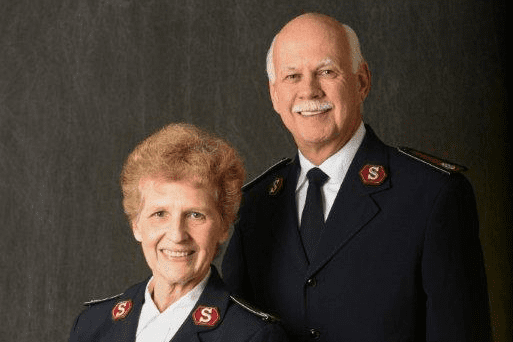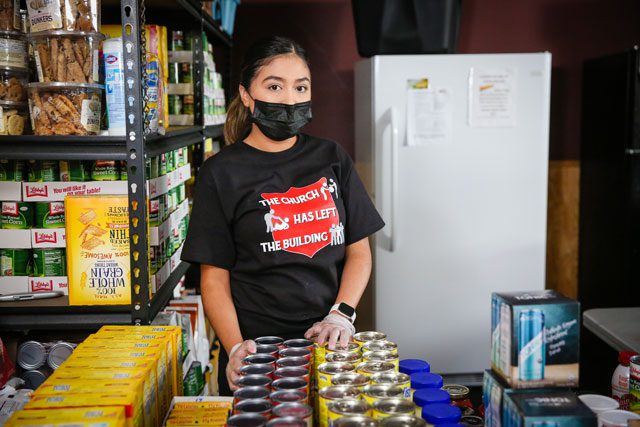Overseas Children’s Sponsorship
by Frances Dingman –
“Sometimes a story gets to me,” confesses Major Ruth Looker as she reviews piles of case reports telling of children in need. As Overseas Children’s Sponsorship Director, finding sponsors for children in and out of Salvation Army institutions overseas has been Looker’s concern since February 1996, when she became the fourth officer since 1991 to take this cause to her heart. This project was begun by the late Major Willa Clevett.
At present, 130 children are waiting for help–but the number continually grows. The list of innovative ways to bring the message to Salvationists and friends in the territory has also expanded. Recently, a flyer was circulated at territorial headquarters telling of a little Russian girl whose mother lacked $60 for a vital operation. Promptly, from a caring employee, came a check for the entire amount.
Children are asked to correspond with their adoptive families at least twice a year, and families are asked to write to them and remember them at their prayer time. Cards, postcards and photos are welcomed, though sponsors are requested not to send packages because of stringent government regulations and exorbitant duty charges.
“This is not part of the regular World Service missionary appeal,” Looker explains. “The project stands on its own,” making it a special challenge to help as many children as possible.
The Internet holds promise for the future, she says, and this territory plans to have its own web page for the program.
At present, children in 26 countries participate, including Russia, India, Africa, South America, and the Caribbean. A brand-new sponsorship program is opening in the Dominican Republic, where the Army began work in July 1996. It is located on the Island of Hispaniola (the other half of the island is Haiti). Already, the Army has four centers with 40 senior soldiers, 25 juniors, and more than 40 in Home League.
Working with those living in extreme poverty, the officers have started a feeding program–and feel it would be of great benefit to provide day care centers as well. A special appeal is being made for sponsoring 10 or more children. Spanish speaking people would feel a common tie with children in this country, notes Major Beth Saunders, sponsorship director in the Caribbean Territory. She and her husband, Territorial Financial Secretary Major Neil Saunders, are Western officers.
Twenty dollars a month constitutes a sponsorship. This offers a child housing, food, clothing, education, medical care, and most of all, the knowledge that someone truly does care. A pledge of $20 per month for a year will meet the needs of a specific child. Pledges directed to a particular home, called “discretionary,” allow the director to use the money where it is needed most, and will benefit more children. Individuals, or groups within and outside of The Salvation Army, may assume sponsorships.
All of the money donated goes toward the child’s care. Administrative costs are funded separately, and of course, donations are tax deductible.











